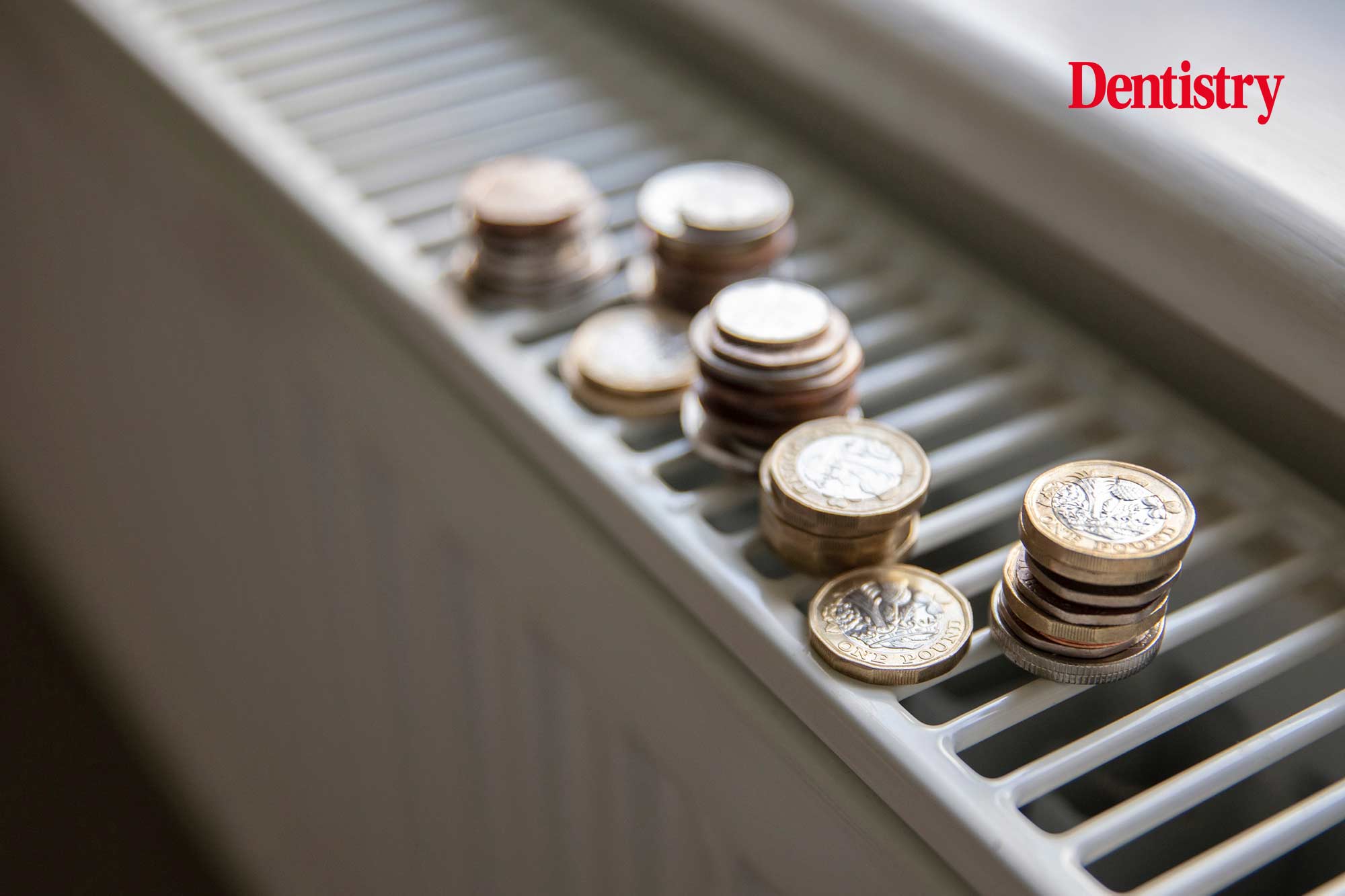 Gaby Bissett explores the impact of the current and incoming economic challenges on the UK dental profession.
Gaby Bissett explores the impact of the current and incoming economic challenges on the UK dental profession.
With further energy price surges and a potential recession on the horizon, the upcoming winter is not looking bright for many across the UK.
Goldman Sachs recently predicted that inflation will hit 22% in January, edging close to the 1975 post-war high.
Households and businesses alike will brace themselves for higher prices as the cost-of-living squeeze will force us to review our spending.
While many of us understand how this may impact us personally, it is also crucial to take a look at the possible impact on business.
Here, we take a look at some changes that might impact your dental practice this winter.
Energy bills
Energy bills are set to rise a terrifying 80% in October as the price cap increases to £3,549 per year. For around 24 million households, this means a £1,600 hike in their energy bills, on average.
The price cap, however, excludes businesses as it only applies to domestic energy customers on standard variable rate energy tariffs (SVTs). This means, theoretically, suppliers can increase their out-of-contract rates by as much as they need to cover their increased costs.
A recent Yougov poll of small and medium sized businesses (SMEs) reports that 44% say they will be unable to sustain higher bills for longer than 12 months.
Currently, the government have put in place the Energy Bills Support Scheme, which will deliver a £400 non-repayable discount to eligible households.
It will be administered by suppliers and paid to consumers over six months, with payments starting from October 2022.
However, businesses do not qualify for the payment – although business owners will benefit through their private household.
According to Inews, the government is in the process of drawing up relief plans for impacted businesses. This might include business rates relief or a Covid business relief style-scheme to ease growing pressures.
Patient footfall
Private dentistry has enjoyed a huge boom in patient interest and treatment uptake following the pandemic. With the ‘Zoom boom’ and months of lockdown taking full effect, many patients had more disposable income to spend on aesthetic treatments – including dentistry.
In fact, a report released last year by Dr Yusra Al-Mukhtar found a 50% increased in searches for ‘tweakments’ and ‘aesthetic treatments’ on Google.
This summer, Barclaycard – one of the UK’s biggest debit and credit card operators – recorded an increase in consumer spending in pharmacy, health and beauty (3.1%) in July compared with June.
But a word of caution might be necessary as the winter draws in, with many preparing to take their foot off the gas when it comes to spending.
Paul Martin, the UK head of retail at the advisory firm KPMG, recently predicted a slow down in discretionary spending.
‘The summer could be the lull before the storm with conditions set to get tougher as consumers arrive back from summer breaks to holiday credit card bills, another energy price hike and rising interest rates,’ he said.
‘With stronger cost of living headwinds on the horizon, consumers will have to prioritise essentials, and discretionary product spending will come under pressure.’
Recruitment
Looking at the UK job market as a whole, vacancies are at near-record levels. The unemployment rate of 3.8% has rarely been lower in the last handful of decades.
In other words, it is very much a candidates’ market – something that very much applies in dentistry. Recruitment troubles continue to plague the profession, from associate dentists all the way to dental nurses. Data from Christie & Co shows that around 80% of dental practices in the UK have more vacancies than this time last year.
In a recent article, business coach Chris Barrow explained how we are in the middle of a hygiene recruitment war.
He says: ‘A significant number of the hygienists who worked at the practice have been tempted away by more money elsewhere. There is a hygiene recruitment war going on in their postcode. Demand for dentistry is up and the supply of hygienists/therapists is down.’
His advice? Put up wages for your best people, pass that extra cost onto your patients and watch your back for headhunters.
In politics, Rishi Sunak has pledged to place dentistry high on his to-do list if he becomes the new Prime Minister.
In terms of NHS dentistry, he says he will review dentists’ contracts to fix problems that have led to the shift in private work. According to reports, he would also review recruitment policies that currently make it easier for dentists to join the private sector.
Utilisation of dental therapists
One of the biggest dental headlines this summer was the announcement of the long-awaited NHS dental contract changes.
Among the adjustments included the better utilisation of different team members.
In short, it means removing administrative barriers from 1 October 2022 ‘which have prevented dental therapists, and others, operating within their scope of practice and competence from opening courses of treatment’.
With this in mind, it may be that this winter sees a ramping up of the utilisation of dental therapists to take the pressure off dentists.
It’s no secret that there is a significant backlog of patients within NHS dentistry. Could this help to tackle it? Only time will tell.
To share your thoughts, please email [email protected].
Follow Dentistry.co.uk on Instagram to keep up with all the latest dental news and trends.


